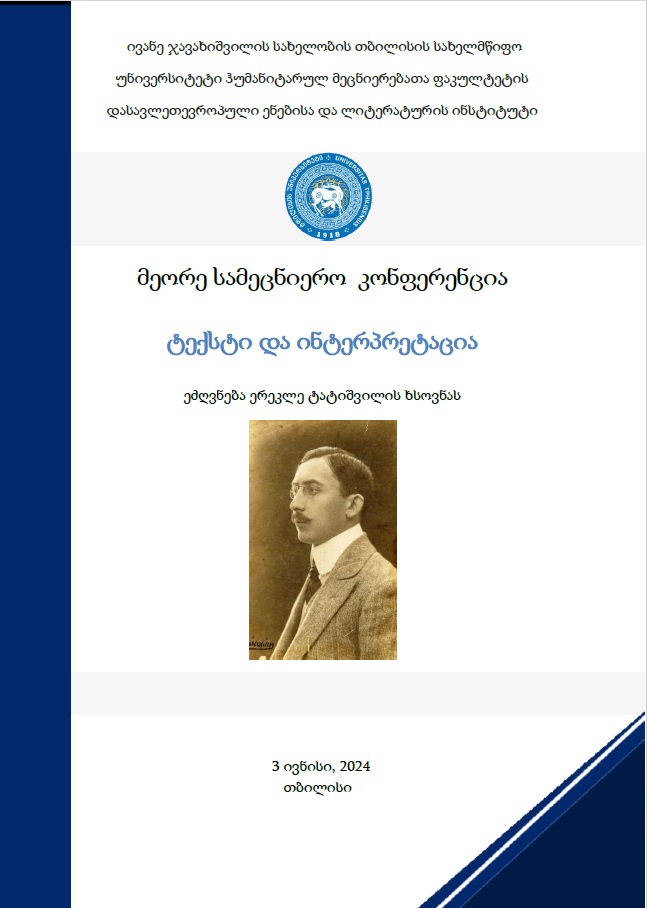Orthodoxy and Hamlet
Keywords:
Orthodoxy, Catholicism, Protestantism, Shakespeare, HamletAbstract
Much has been written about the Protestant and Catholic tendencies reflected in Hamlet, but almost nothing has been said about the possible presence of Orthodox Christian tendencies in the play, since Shakespeare was not Orthodox, like most of the scholars of his work. On the rare occasions when Orthodox Christianity is mentioned in relation to Shakespeare, it mostly implies only those Orthodox characteristics that Catholicism and/or Protestantism can also claim to have. That is why it is necessary to look for such Orthodox features in Hamlet that are incompatible with both the Catholic and Protestant views, since only in this case we can talk about the reflections of the Orthodox Christian faith in the play.
Shakespeare lived in Protestant England, although a few decades earlier his homeland was a follower of Catholicism. The difficult process of transition from Catholicism to Protestantism in the English nation was not yet fully completed. The Protestant-Catholic ambiguity in Hamlet is a direct echo of this historical-religious context. When we connect Shakespeare’s work with Orthodoxy, we should not ignore the earlier religious past of England, that about five centuries before Shakespeare, the English nation was Orthodox. The history of Orthodoxy in England covers the period from the Christianization of the Anglo-Saxons to the conquest of England by the Catholic Normans. Thus, it seems that we have before us a Protestant Shakespeare, with obvious Catholic influence, but at the same time with possible distant Orthodox spiritual genetics. To what extent this is true, his Hamlet answers this in a way.
The motif of religious ambiguity enters the play at the very beginning. Horatio, a Protestant student at the University of Wittenberg, who is skeptical of the reality of apparitions of spirits and ghosts, stands with Bernardo and Marcellus at the watchtower of Elsinore Castle at midnight. But a ghost appears to them, challenging Horatio’s Protestant faith. The next night, in a conversation with Hamlet, the ghost declares that it is the spirit of the prince’s father, the deceased king, from purgatory. This contrasts more clearly with the Protestant view and agrees with the doctrine of purgatory introduced by Catholicism.
Along with ambiguity, the spirit of searching for the truth is apparent from the beginning of the play. Hamlet becomes desperate for a proper explanation of the ghost phenomenon. He does not blindly believe the ghost’s words, nor does he trust his own or other people’s fantasies and interpretations. It is vital for him to find out the truth, free from all subjectivity, because if he follows his personal ideas, he knows that he will surely be wrong. Therefore, Hamlet seeks objective truth, which is the only one, and rejects human imagination, which in its diversity lays the foundation for misinterpretations.
Hamlet’s creative vision is essentially orthodox, focused on the correct reflection of the truth, without any distortion. He urges the actors to show reasonable moderation on the stage so that the theatre becomes a mirror of nature. Hamlet rebukes actors who deviate from the orthodox dramatic concept. After all, the play staged under his direction has the function of uncovering the truth. Even before his death, it is extremely important for Hamlet to reveal what really happened. For Orthodoxy, too, the objective truth, unchanged from subjective imagination, is essential. In Orthodoxy, even the slightest deviation from the truth, the slightest distortion of the teachings of Christ and His apostles, any change in the Creed or Church dogmatics is equivalent to spiritual death, since it is impossible for the truth to be different yesterday, today and tomorrow.
References:
Bible. (2009). Tbilisi: Patriarchate of Georgia. (In Georgian).
Greenblatt, S. (2013). Hamlet in Purgatory. Princeton: Princeton University Press.
Moss, V. (2016) Essays on True Orthodox Christianity. Vol. 4. Lulu Publishing.
Shakespeare, W. (2019). Hamlet, Prince of Denmark. Ed. Philip Edwards. 3rd ed. New Cambridge Shakespeare. Cambridge: Cambridge University Press.

